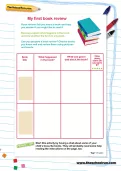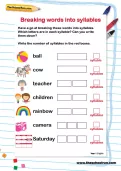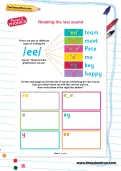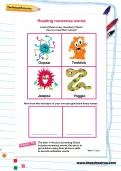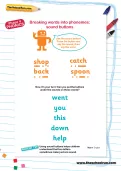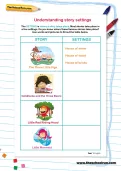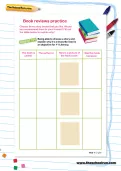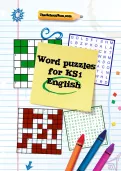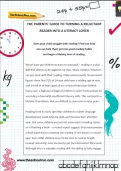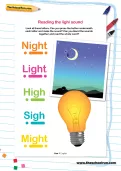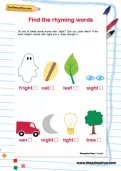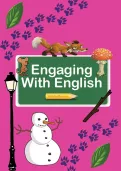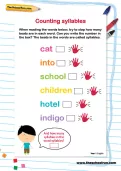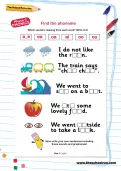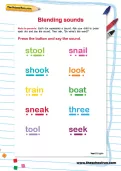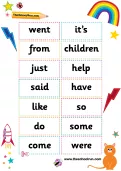Look at these scary monsters! Yikes!! Can you read their names?
or
Register to add to your saved resources
Already a subscriber? to view this content.
Learn about phonemes: press the button and say the sound, then say the word.
or
Register to add to your saved resources
Already a subscriber? to view this content.
Roll the die and see how many words you can think of that start with that sound.
or
Register to add to your saved resources
Stories take place in different settings. Can your child use their knowledge of traditional tales to identify the story settings for these well-known stories?
or
Register to add to your saved resources
Already a subscriber? to view this content.
Book reviews are a very common writing activity for KS1 children. Help your child get used to the format and including all the different elements with this template worksheet. They can use pictures to express their views, too! Ideal for Y1 learners.
or
Register to add to your saved resources
Already a subscriber? to view this content.
As your child grows more confident in their reading they will be asked to reflect on what they read and review it. Help them get used to reviewing books with our template – they can use words and pictures to share their views. Will they give the latest reading practice book five stars or one?
or
Register to add to your saved resources
Take a break from homework and spelling drills with this collection of word puzzles for Key Stage 1! Each one covers a different concept that your child will learn in English lessons, but presents it as something to solve by remembering what they've been taught in class.
or
Register to add to your saved resources
Already a subscriber? to view this content.
Why are some children reluctant to read, and what can you do to help them fall in love with books? From exploring non-fiction to making reading a feel-good pleasure, we explain how you can turn a reluctant reader into a bookworm. Happy reading!
or
Register to add to your saved resources
Already a subscriber? to view this content.
Does the igh sound make you sigh in the night? This worksheet will help you see the light! Practice with all your might and you will soon be soaring high!
or
Register to add to your saved resources
Already a subscriber? to view this content.
This activity will enable your child to recognise the /ea/ sound, which can be represented by a number of different graphemes, and practise reading and writing it.
or
Register to add to your saved resources
Can you find all the words that rhyme with 'right'? An excellent activity to help your child practise listening carefully to see if a word rhymes.
or
Register to add to your saved resources
Already a subscriber? to view this content.
Created by an early years education expert, the Engaging with English pack will provide you with lively and original ideas to help bring four popular children’s books vividly to life. Whether your child is in the EYFS or KS1 these activities are the perfect starting point for turning book-shy children into bookworms.
or
Register to add to your saved resources
Already a subscriber? to view this content.
Use this worksheet to encourage your child to read words aloud and then break them into syllables.
or
Register to add to your saved resources
Already a subscriber? to view this content.
Use this worksheet to encourage your child to clap out syllables in words and then write down how many they think there are.
or
Register to add to your saved resources
Already a subscriber? to view this content.
A Phase 5 phonics worksheet to help children understand how to use the correct phoneme / grapheme.
or
Register to add to your saved resources
Already a subscriber? to view this content.
Use this worksheet to help your child sound out and identify the phonemes in various words.
or
Register to add to your saved resources
Already a subscriber? to view this content.
During Years 1 and 2 your child will be expected to learn to read and spell high-frequency words as well as the days of the week, months of the year, numbers to twenty and colours. Help them practise at home with our colourful flashcards.
or
Register to add to your saved resources
